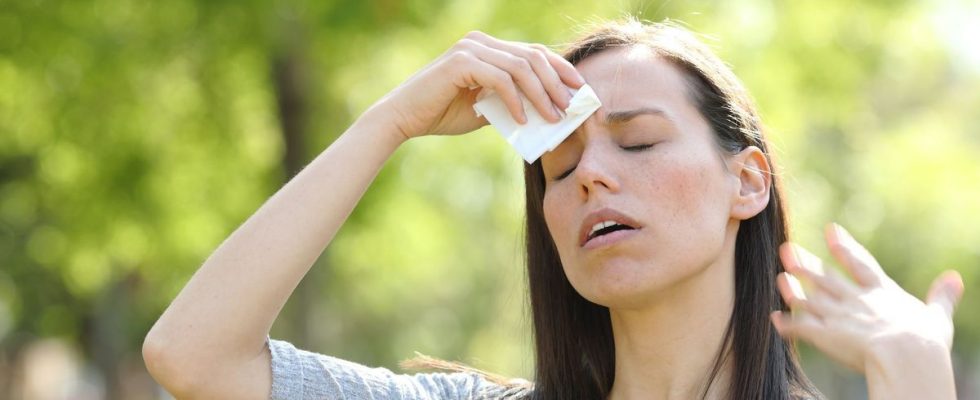Published on
Updated
Reading 2 mins.
in collaboration with
Dr Gérald Kierzek (Medical Director of Doctissimo)
More serious than sunburn, sun poisoning is true heat stroke, with possible serious health consequences. The explanations of Dr Gérald Kierzek, emergency doctor and medical director of Doctissimo.
The hot weather is back and with it, possible sun poisoning. But what is really hiding behind this expression?
Sun poisoning, also called heatstroke
Sometimes called “sun poisoning”, heatstroke is the stage that comes after sunburn. “Heat stroke occurs when our body can no longer fight against the heat and the sweating and perspiration mechanism is no longer sufficient to cool the body” first explains Gérald Kierzek, emergency doctor and medical director of Doctissimo.
“It is necessary to be wary of it because although one speaks about poisoning with the sun. This disorder is rather linked to high temperatures and the practice of intense activity in the heat.“ warns the doctor.
Symptoms of heat stroke, not to be overlooked
In case of heatstroke, drinking is not enough. “The regulation of heat is no longer done correctly, the body is in hyperthermia and several symptoms are triggered” adds Gérald Kierzek. “We find, for example, redness, headaches, dizziness, fever, cramps, nausea, gasping breathing, a high pulse… This can go as far as thermal shock and cause blood pressure to drop to death”.
Call for help quickly, as this is an emergency!
If this happens to a person and you are present, immediately call the emergency services. According to the emergency physician, “faced with the fever that the patient presents during a heat stroke, sometimes more than 40°C, giving paracetamol is useless“.
It is necessary to cool the organism, by sprinkling it with cool water, by putting wet towels on its body, by causing drafts… “By alerting the 15th, the emergency services will quickly move to put the patient on venous rehydration.” further specifies Dr. Kierzek, who insists by recalling that it can happen to everyone. “We associate heatstroke with the elderly or the one on medication, but it really can happen to anyone.”
To avoid any risk during hot weather, it is essential to follow these few instructions:
- Stay in the shade if you are outdoors;
- Wear a hat and light clothing;
- Protect parts of the body that are not covered by clothing with sunscreen;
- Drink water regularly, at least 1.5 liters per day and more, in case of hot weather;
- Avoid excessive exposure to the sun, especially during the hottest hours (from 10 a.m. to 4 p.m.) and in particular for babies, children and the elderly;
- And of course, avoid any major physical exertion.
